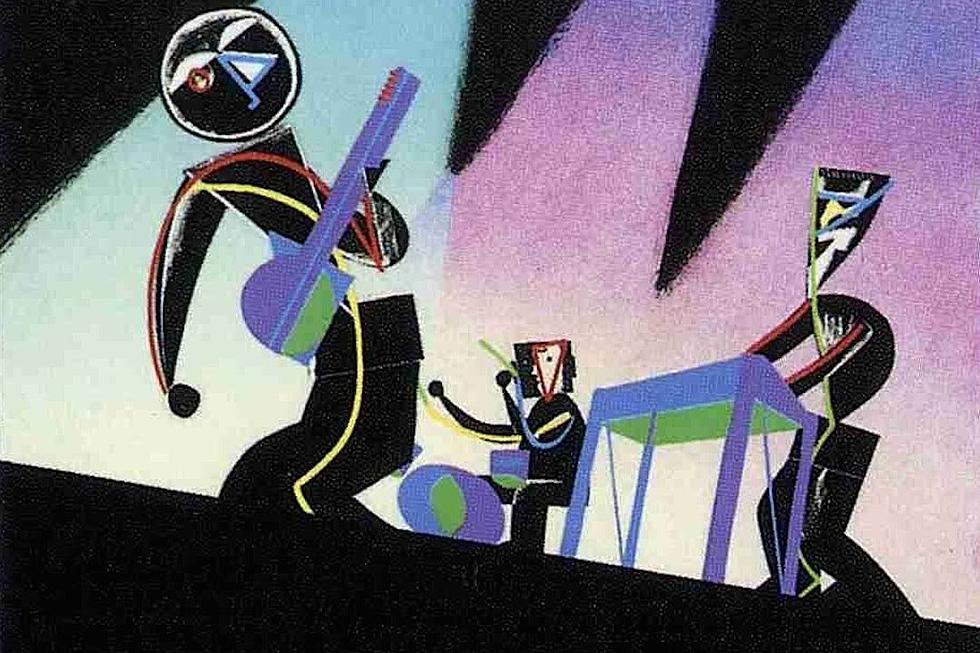
How Rush Overcame Crushing Tragedy to Produce ‘Vapor Trails’
Vapor Trails found Rush again pushing themselves in new directions creatively. They strove to find different ways to create the sounds that they had in mind.
Synths, which had perhaps become a familiar crutch on previous LPs, were pushed to the side for their 17th studio album, released on May 14, 2002. “I thought it would be more interesting if we created the same things that keyboards were doing in the past with Geddy [Lee]'s voice or a guitar or even bass,” Alex Lifeson would later explain.
Unfortunately, Rush struggled at first to find the groove in the studio. “We started jamming, but we didn’t have anything we were crazy about," Lifeson told Guitar World. They ended up labeling the initial material that emerged as “forced.” After breaking for a couple of weeks, Lifeson says things began to gel when they came back together; Rush finally began to “hear songs, not just parts.”
The fact that Vapor Trails exists at all represents a musical triumph for the band personally and a return to action after an unforeseen hiatus. Neil Peart had suffered the tragic loss of both his daughter (in a car accident) and wife (who passed from cancer) in a harrowing 10-month period.
These events understandably set him on a new path. He took to the roadways of America, undertaking a journey that would help to begin the healing process. Spiritually, it was a very inspirational trek, one that showed up musically on Vapor Trails in the form of the song "Ghost Rider." The track hauntingly details how Peart’s attempted to “pack up all of the phantoms” and “shoulder that invisible load.”
Listen to Rush's 'Ghost Rider'
The open road gave Peart endless miles to explore both his surroundings and himself: “Keep on riding north and west / Then circle south and east / Show me beauty but there is no peace / For the ghost rider.” While the latter half of the above lyric might feel bleak, the end of "Ghost Rider" carries some hope, with the lyrics “There’s nothing to stop you now / Nothing can stop you now.”
Peart’s powerful drumming provides the first sounds heard on Vapor Trails, on the album-opening "One Little Victory." The Canadian trio sound positively reinvigorated, firing on all cylinders on this highly anticipated return.
Energetically driven by surging riffs from guitarist Lifeson that volleyed back and forth across the sonic soundscape, "Victory" made it very clear that Rush were collectively happy to have another chance at victory and to share more music with their devoted fanbase.
Rush fans ate it up, although the rumbling regarding the somewhat questionable production quality of Vapor Trails grew louder and louder, until the band themselves acknowledged that perhaps there were a few regrettable chinks in the audio armor of the album.
Lifeson eventually told Classic Rock that “we were never happy with the production.” Shouldering at least part of the blame, Lifeson admitted, “perhaps we should have taken more time over the record.”
Rock Hall's Worst Band Member Snubs
The Rush / Metallica Team-Up That Slipped Away
More From Ultimate Classic Rock









